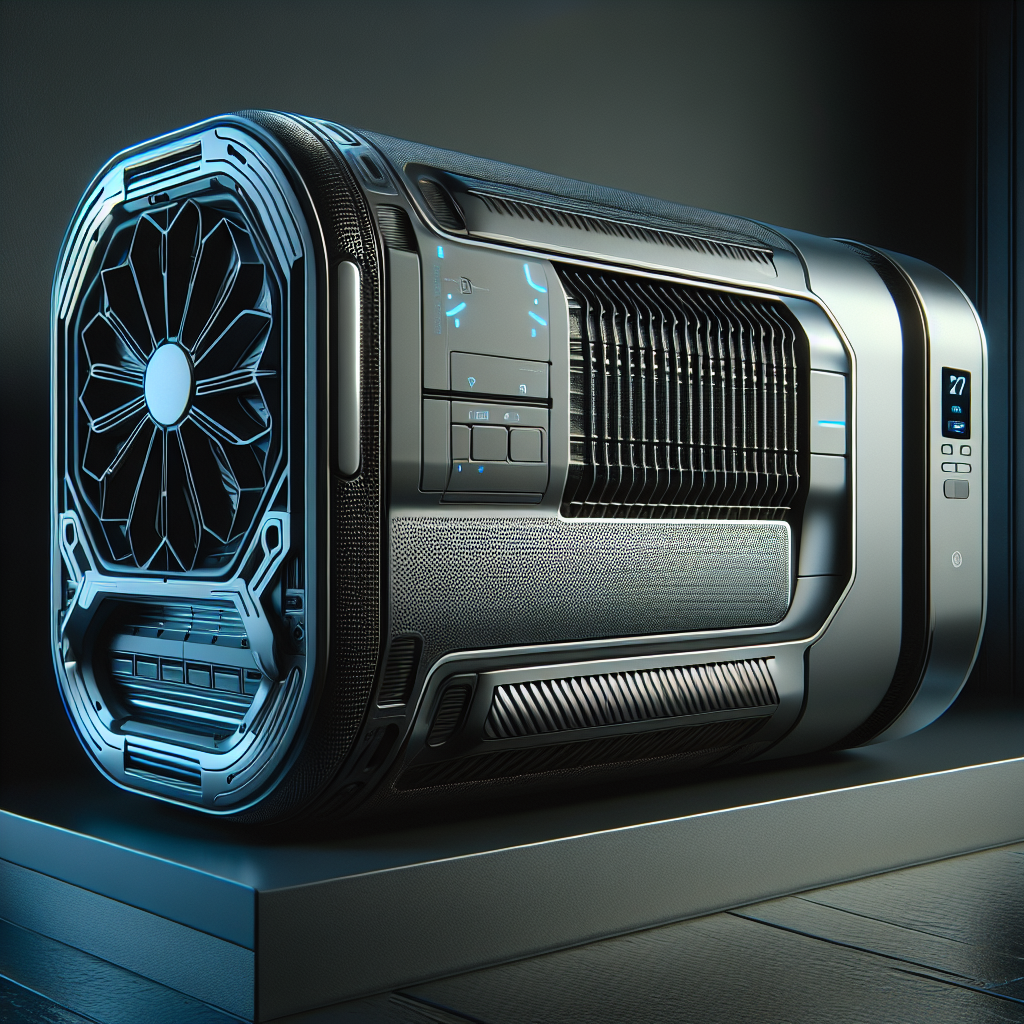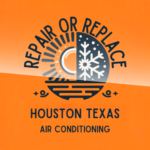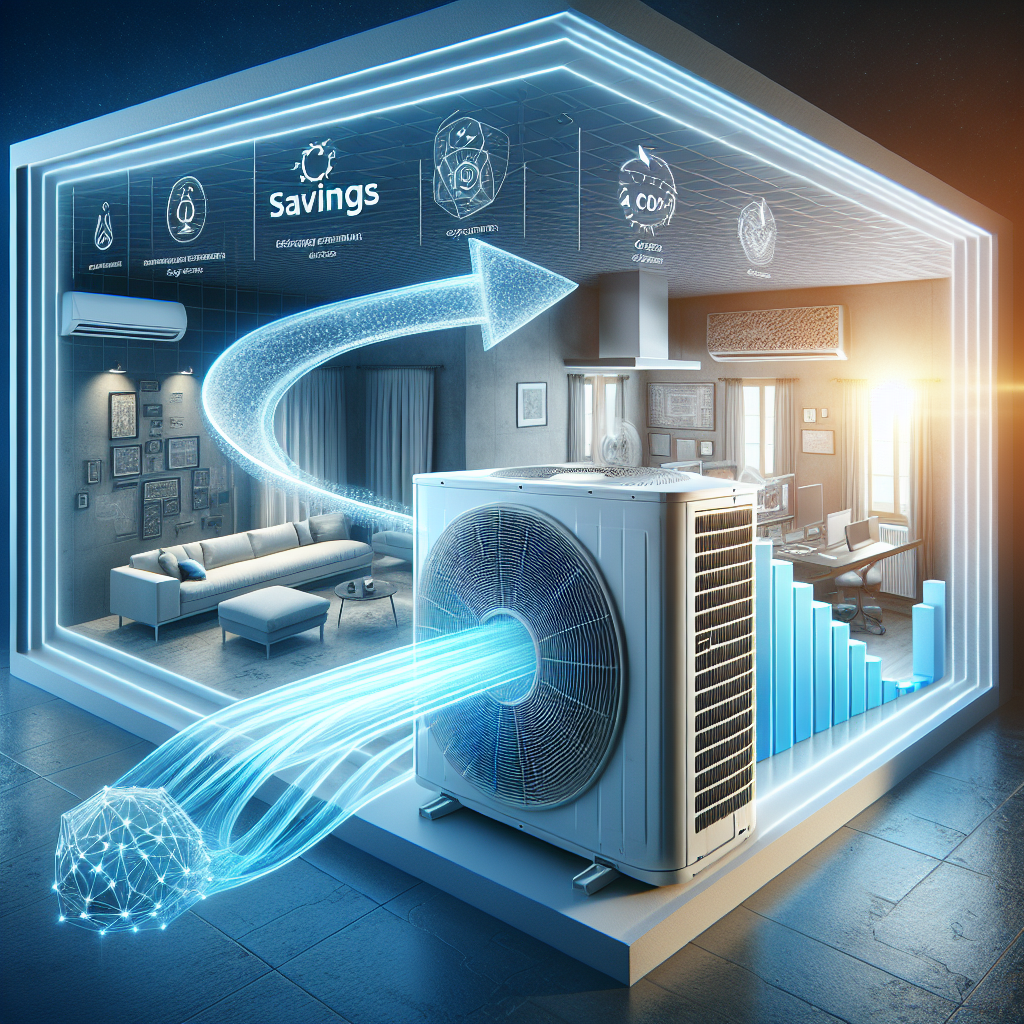As the temperatures rise, finding the right cooling solution becomes a top priority for many homeowners. You might be wondering what kind of financial commitment makes sense for your new system so you can beat the heat without breaking the bank.
First off, it’s essential to understand your needs.
Consider factors like your local climate and how chilly you want your indoors to feel.
A well-sized HVAC system investment can make all the difference in achieving that comfort level.
If you’re in Houston, for instance, you’ll want something powerful enough to handle those sweltering days.
Now, let’s talk about the average costs of air conditioners. Typically, you can expect to spend anywhere from a few hundred to several thousand on the cost of an air conditioner, depending on the AC unit price, HVAC system investment, and overall cooling system expense.
Click here to learn more about: prices.html
Factors Influencing AC Unit Price
Now that we’ve talked about what to think about when choosing the perfect system, let’s explore what can affect the overall pricing. Knowing these factors will help you better understand the cost of air conditioner options and fit them into your air conditioning budget.
- Initial Costs:
- Different types of AC units come with different price ranges. Are you considering a central system or a window unit? Picking the right model selection is important.
- Think about the upfront investment and what kind of long-term savings you might see. It’s about striking the right balance with your homeowner budget considerations!
- Brand Reputation:
- Certain brands might cost more because they’re known for their reliability and excellent customer support. This can really affect residential air conditioner rates, especially where there’s competition.
- Energy Efficiency Ratings:
- Picking an energy-efficient system usually means lower cooling system expenses down the line. Look for ENERGY STAR certified units to get the most out of your seasonal savings.
- Installation Expenses:
- Don’t overlook installation fees! While professional installation can feel like it’s adding to the cost, it makes sure your system runs efficiently and safely, which can change your long-term costs.
- Available Promotions:
- Always keep your eyes peeled for seasonal promotions on AC units or rebates on cooling systems; these can really affect the overall cost of your purchase.

How To Evaluate HVAC System Investment
Evaluating your HVAC system investment can feel like a big step after considering the cost of air conditioner options and factors influencing pricing. However, this doesn’t have to be overwhelming; let’s break it down together.
Start by looking into how much you could potentially save on energy bills. Newer, energy-efficient models often lead to impressive seasonal savings that can accumulate year after year. But don’t just stop there—think about your plans. If you plan on staying in your home for a while, investing in a durable unit can truly pay off in the long run.
Maintenance costs are also essential to factor in. Keeping your system well-maintained is key for avoiding unexpected repair expenses and ensuring your unit operates smoothly with minimal disruptions. Regular check-ups help maintain its efficiency and extend its lifespan, providing peace of mind as well as financial benefits over time.
As we move from costs to opportunities, it’s good to remember that timing can greatly influence affordability. Keep an eye out for seasonal promotions on AC units—spring is typically a great time to snag discounts that can significantly lower your overall home cooling expenses and maximize your seasonal savings regarding central air conditioning price. Deals may include rebates on cooling systems, making your investment even more cost-effective.
Ultimately, a thorough assessment of energy consumption savings, potential rebates, and efficiency ratings can guide you in making a smart choice. With a little research and planning, you’ll find an HVAC solution that fits comfortably within your air conditioning budget!
Understanding Seasonal Promotions On AC Units
As we’ve talked about evaluating your HVAC system investment and the costs involved, it’s also crucial to keep an eye on the seasonal promotions available. Spring and summer bring in a range of attractive offers that can really help lighten the financial load of AC repairs and installations.
With the weather getting warmer, various companies kick off enticing deals, giving you the opportunity to either keep your current unit running well or upgrade to a more energy-efficient model without straining your air conditioning budget. It’s definitely worth exploring, as you might stumble upon special discounts on repairs, making those typical residential air conditioner rates much more manageable.
And don’t overlook package deals! Bundling services not only makes things simpler but can also lead to significant savings, making it easier to swap out that old unit for something modern and efficient, like a ductless AC option.
Timing is everything when it comes to taking advantage of these offers. Spring is usually the best time for a routine check-up, allowing homeowners to assess split system costs, ductless AC pricing, and overall cooling system expenses before the heat of summer arrives.
Plus, these promotions often feature rebates on cooling systems, which can make your investment even more budget-friendly. So, before you make any move, take a moment to see how these seasonal savings can work in your favor. A bit of planning and research during this prime time can lead to much lower future energy bills!
What Are Typical Installation Costs
So, you’re eyeing those seasonal promotions on AC units, huh? Great choice! But while you’re dreaming of cool breezes, let’s talk about the costs involved in getting your new system up and running. Knowing these expenses helps you stay on track with your air conditioning budget.
Installation costs typically break down into three key areas:
- Components: This includes the AC unit itself, ductwork, and any essential accessories. Depending on the brand and type of system you go for, the upfront cost can really differ. And don’t forget about the features affecting AC price, as they can impact both your initial purchase and future energy consumption savings.
- Labor: Installation fees can vary based on where you live and the technician’s skill level. It’s worth shopping around a bit. Finding the right balance between cost and quality of installation is crucial for ensuring your new unit has a good lifespan and runs efficiently.
| Cost Category | Details |
|---|---|
| Components | Includes AC unit, ductwork, and accessories; costs vary by brand and features. |
| Labor | Installation costs vary by location and technician experience; shopping around is recommended. |
| Extra Fees | May include permits, disposal fees, and any additional services. |
Being aware of these installation costs helps you compare the price range for AC units more effectively. For instance, if you snag a great deal on a unit but the labor costs are through the roof, those savings might not be as big as you thought. Also, keep in mind that permits and disposal fees can pile onto your total home cooling expenses, so factor those in. With a good look at your options and a sharp focus on seasonal promotions, you can take charge of your costs and make a smart investment in your HVAC system—keeping your home comfy for years to come!
Comparing Energy Efficient AC Costs
After looking at the installation fees and special deals out there, let’s turn our attention to finding the right air conditioning option that balances those upfront costs and the savings you can enjoy down the road. It might feel a little complicated, but once you get the hang of the details, it becomes much more straightforward.
While energy-efficient AC units might initially seem more expensive, the energy consumption savings they offer can really make them worthwhile. Over time, you could see your monthly utility bills decrease, which is definitely something many homeowners want to consider when thinking about their air conditioning budget.
Now, let’s get into the nitty-gritty of installation costs for these energy-efficient models. They usually come with higher upfront costs than standard units, but don’t let that discourage you. There are plenty of financing options available that can help break those costs into smaller, more manageable payments, making it easier on your finances.
Many find that the added cooling capacity makes the higher price worthwhile, especially when those summer temperatures soar. Plus, energy-efficient models often include features that enhance their performance and lead to lower operational costs over time, making them a smart investment for any HVAC system.
As you consider your choices, remember that factors like rebates on cooling systems can help lessen the initial outlay, making energy-efficient models even more appealing. With tech like smart thermostat integration, you can manage your home cooling expenses better than ever before.
In the end, thinking about the long-term savings tied to these units can guide you in making a smart choice that fits both your cooling needs and your budget.
Assessing Upfront Cost Of HVAC
Once you have a solid grasp on the installation costs and the perks of energy-efficient models, it’s time to zero in on the upfront cost of HVAC systems. When thinking about an upgrade, the unit price plays a big role in your decision-making process.
Things like brand reputation and model selection can really change what you’ll need to lay out initially. It’s smart to check out both traditional and energy-efficient options; while they might seem a bit more expensive at first, the potential energy consumption savings could lead to significant long-term savings. Remember, a proper analysis of your home’s cooling needs is crucial for selecting the right unit.
Next, let’s talk about installation costs, which can swing quite a bit based on where you live and the type of system you choose. Make sure to put aside enough money for setup since professional installation can help you dodge unexpected problems and expenses. While experienced technicians may charge more, their know-how can save you money in the long haul.
As you weigh your options, don’t overlook vital elements like BTU rating, warranty options, and the different features affecting AC price. These details will help you make informed choices that suit your homeowner budget considerations.
HVAC System Upgrades
- Energy-efficient models can save homeowners up to 30% on energy bills over time.
- Hiring licensed technicians for installation can reduce the risk of costly repairs in the future.
- Systems with higher BTU ratings can provide better heating and cooling efficiency for larger spaces.
- A good warranty can protect your investment and provide peace of mind for years to come.
How Maintenance Costs Affect Budget
Building on our earlier talks about installation costs and energy-efficient choices, it’s clear that keeping your HVAC system running smoothly is super important. Regular maintenance goes beyond comfort; it directly affects your wallet by reducing operational costs and stopping those surprise repair bills that always seem to show up at the worst times.
By addressing small issues early, you can really enjoy the long-term savings. A little attention now can mean big bucks saved later!
- Small Fixes Prevent Big Problems:
- Routine maintenance helps you catch those minor hiccups early, which can save you a lot on repairs later on.
- Think of it like taking advantage of seasonal promotions on AC units—it’s much better to grab them when you can rather than waiting until you’re in a pinch!
- Long-term Savings:
- Seasonal promotions on AC units, combined with rebates on cooling systems and high efficiency ratings, can really cut down on your cooling system expenses.
- A well-maintained system runs more efficiently, meaning you’ll see lower energy consumption savings and reduced future energy bills.
When it comes to your HVAC system budget, ignoring maintenance can lead to rising costs. Regular check-ups not only extend the unit lifespan but also protect you against expensive repairs, helping you keep your homeowner budget on track.
Exploring Financing Options For AC
As we wrap up our thoughts on maintenance costs and the value of investing in a solid HVAC system, it’s time to look at how to fund your new air conditioning system without emptying your wallet. Finding the right financing options can really help take the stress out of this decision, especially for homeowners who are keeping an eye on their air conditioning budget while considering new installations or necessary repairs.
These cost-effective solutions can really ease the financial burden and ensure you’re not left sweltering in the heat, especially when it comes to cost of air conditioners.
- Types of Financing Plans Available
When it comes to making your AC dreams a reality, there are several financing choices to think about, like personal loans, retail financing, and flexible payment plans. Many HVAC providers even roll out special promotions during peak seasons. This means those installation fees can take a significant dip, turning what might have once seemed daunting into a breeze.
- Financing Terms and Potential Benefits
With personal loans, homeowners can often access competitive interest rates to finance significant improvements to their cooling systems. Retail financing options frequently feature promotional periods offering zero or low interest, allowing you to spread your payments comfortably over time. Flexible payment plans can assist you in managing your air conditioning budget effectively, making it easier to avoid overspending on installation costs or repairs later down the line.
Air Conditioning Financing
- Personal loans can offer competitive interest rates for financing home improvements.
- Retail financing options often include promotional periods with zero or low interest.
- Flexible payment plans can help homeowners manage their budgets effectively.
- Investing in energy-efficient air conditioning systems can lead to long-term savings on future energy bills.
What Impacts Cooling System Expense
Now that we’ve touched on the importance of financing options and maintenance costs, let’s look at what really affects the expense of your cooling system. Recognizing factors such as system size, brand reputation, and installation specifics can truly help you manage your air conditioning budget effectively.
- System Size Matters:
- The bigger your home, the more powerful the system you’ll need. Larger spaces typically lead to higher costs, especially when considering cooling capacity requirements and AC unit prices.
- BTUs play a crucial role here! Higher BTUs generally mean increased energy consumption, which could impact your future energy bills significantly.
- Brand Influence:
- Choosing the right brand can also affect your overall spending. Prices vary widely among manufacturers, influenced by efficiency ratings, features affecting AC price, and the quality of warranty options they offer.
- Don’t overlook installation labor charges either, as they can add to the upfront cost of HVAC solutions.
- Energy Efficiency:
- Opting for energy-efficient AC models often comes with a higher upfront investment; however, the long-term savings on your operational costs and future energy bills can make it worthwhile.
- Look for energy star certified units to maximize your savings on cooling system expense and keep your home comfy during those sweltering summer months.
- Installation Location:
- The specifics of your installation location can greatly influence costs. For instance, additional ductwork or modifications to your existing setup can affect the overall price range for AC units.
- Don’t forget to factor in geographical pricing differences, as local market pricing can vary, creating unexpected surprises in your air conditioning budget.
By considering these various elements, along with the maintenance costs we’ve already discussed, you can make a more informed decision when it comes to managing cooling system expenses. After all, investing wisely can lead to significant seasonal savings and a more enjoyable home environment!
Tips For Estimating Home Cooling Expenses
When it comes to estimating your home cooling expenses, one key factor to keep in mind is your home’s size. Larger spaces generally require a bigger investment in your HVAC system, leading to higher costs for both installation and ongoing care. It’s all about finding the right AC unit for your space, and knowing how much cooling capacity you need can make a big difference in what you’ll pay.
Your local climate can also have a big impact. If you live in an area that gets really hot, be ready for higher monthly bills. Frequent air conditioner use is part of your overall air conditioning budget, and it adds up over time.
And don’t forget about the importance of regular maintenance! Keeping up with maintenance can prevent small problems from growing into bigger, costlier repairs. This not only helps you save money in the long run, but it can also improve the efficiency of your system, meaning you’ll possibly see some nice savings on your future energy bills.
By focusing on these aspects, like the size of your home and how often you use your AC, you’ll be in a better spot to estimate those cooling expenses and keep your home comfy when the heat kicks in.
| Factor | Impact on HVAC Costs |
|---|---|
| Size of Home | Larger areas require higher HVAC pricing for adequate cooling |
| Local Climate | Hot regions typically incur higher cooling costs |
| Frequency of AC Use | More frequent use leads to increased expenses |
| Regular Maintenance | Can save money by preventing larger issues |
What Is The Cost Of An AC Unit
What Is The Average Life Of An AC Unit In Houston


